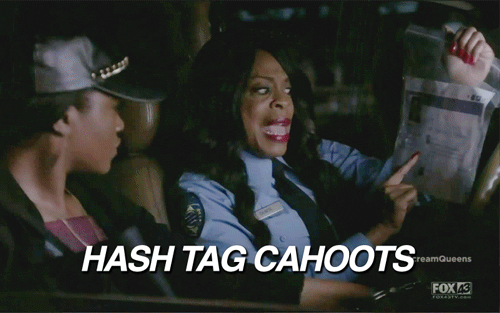Those fond of food, hashtags, and social media will be hooked on New Orlean’s newest app, Locle. The mobile app is the creative brainchild of Tulane University students Luca Alessandrini and Eric March. The duo’s startup is a restaurant tagging system that integrates platform concepts similar to Yelp and Twitter to produce a foodie social network.
Locle functions so that users can tag local eateries with hashtags describing their experience, rather than writing a full-scale review. This rids the ranking part of a review, where a restaurant receives an overall starred rating.

GIF courtesy of fallontonight.tumblr.com on Giphy
Alessandrini, an Italian and marketing sophomore and New Orleanian, met legal studies junior Eric March through a student entrepreneurship organization a few months ago. The two collaborated for the Failup to StartUp Pitch Competition, a product of two University student organizations. On February 25, Alessandrini and March won $500 for their business idea.
“We’re moving more toward the qualitative: how can someone describe a restaurant in the way that they would, and find restaurants in the way that’s what they want,” Alessandrini said.
Originally, the two’s business model was similar to this customer rewards program app, until they modified their idea to better fit their target audience.
On Locle, the user posts up to three individual, unrelated tags that are particular to their vernacular. The user can search for other restaurants with specific tags, browse categories for types of food, and see what those they’re following are eating on a home feed. Individuals and businesses can create profiles to post content from.
Like this food cart tracker app, Locle helps its users to locate and discover new places to try by sifting and searching tags.

GIF courtesy of pricepeterson-yahoo.tumblr.com on Giphy
The app offers a much more holistic view of the restaurant, March said. Individuals are motivated to write a concise review quickly and simply, a concept that will gain Locle a larger user database than Yelp or Urbanspoon.
Locle’s target demographic is a younger audience, foodies who like sharing and documenting their dining experiences on social media. The app will connect people’s Facebook accounts to their profiles and is also a tool for those with dietary restrictions to find the right eatery for them.
For restaurants, the app presents valuable insight to consumer reception. Corporations can learn how customer groups feel about them, and work on improving the relationship between customers and their brand image.
“By using this word-tagging method and also by giving them a platform that allows them to analyze the words they use and what their brand is, I think we’re doing something really great for small restaurants and local restaurants,” Alessandrini said.
“We’re appealing to everyone to become their own food critic and discover their own food identity,” Alessandrini said. “We want to make a system that reflects our generation and our attention span, that you can quickly and concisely read what an experience would be like at a restaurant.”
Yeah, we’re pretty excited.

GIF courtesy of gif-database.tumblr.com on Giphy
Users can also be alerted via smartphone notification of specials and promotions companies are offering.
Alessandrini said that the entrepreneurs are hoping to create a sentiment analysis system so that the app will know when certain words are synonyms. The pair plan to look through Yelp reviews to see which words appear the most commonly, and use the recognition system at first.
The app is still in development, with plans to have a tester beta website by early summer. The website will be by invitation-only and will be a way for the partners to test out their idea in a controlled environment. They need to collect data and concrete facts to prove their claims in order to get further funding to take their startup off the ground.
Rushing the project is the least of their worries — Alessandrini and March are taking the time to ensure their idea is done right. For now, the app will launch in New Orleans and stay in the Big Easy until user participation is measured. Until then, foodies outside of NOLA can stay occupied with these useful food apps.
The aim of Locle is to have a smarter dining out process that creates better recommendations. “Our goal at the end of the day is to become immersed in other sides of the food business,” Alessandrini said.


